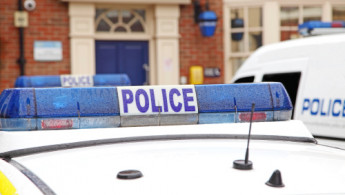Nearly 2,000 UK police officers accused of sexual misconduct
Nearly 2,000 police officers in the UK have been accused of sexual misconduct over the past four years, including rape, new figures show.
An investigation by Channel 4's Dispatches documentary series found that nearly 2,000 officers, special constables, and community support officers at 39 forces have been accused of sexual offences since 2017.
Nearly two-thirds of allegations did not result in disciplinary action and only 8 percent of those accused of sexual offences were fired.
Almost 300 police officers had previously been reported for misconduct before they fresh claims emerged of inappropriate behaviour.
The statistics were found by Channel 4’s investigative documentary series, Dispatches, and came as The Times released an investigation that appear to show a police cover-up of serious allegations against officers.
The revelations come just days after Wayne Couzens was given a whole-life sentence for the horrific murder of Sarah Everard while he was a serving police officer.
All misconduct hearings in the UK police were held in private until 2015 when Theresa May, who was home secretary at the time, reformed the system to introduce greater transparency.
May later served as prime minister between 2016 and 2019.
Despite the change in the system, police forces frequently hold hearings to examine cases in private.
A quarter of misconduct hearings that involve serious violations, including sexually inappropriate behaviour, racism and homophobia, are closed to the public.
Police are also said to anonymise accused officers by hiding their ranks and details of their alleged offences despite it being against the law to do so except in extenuating circumstances.
Even when police forces do name sacked officers they have deleted public notices outlining their misconduct within weeks, the reports said.
In the case of Wayne Couzens, the Metropolitan Police removed the online notice detailing his sacking.
Couzens, 48, who served in London's Metropolitan police force, was jailed for life last week after admitting the kidnap, rape, and murder of Everard.
He had falsely arrested the 33-year-old marketing executive as she walked home from a friend's house, on the pretence that she had broken coronavirus restrictions in place at the time.
Her death rocked the country and led to an outcry about the levels of violence against women and girls in Britain.
It has also raised questions about police vetting, how forces handle complaints from victims, as well as wider calls to address sexism and misogyny in policing.
Prior to Everard's death, thousands of members of the British public spoke out against police misconduct - including racism.
Last year, the Black Lives Matter movement led a debate on allegations of systemic police racism in the UK, following the death of George Floyd in the US, which sparked worldwide solidarity protests.
A policing source said: "Forces are adhering to the letter of the law but not the spirit of the law. Accused police officers invoke mental health concerns knowing it will result in their case being held in closed session. The public just don't find out about a lot of these cases."





 Follow the Middle East's top stories in English at The New Arab on Google News
Follow the Middle East's top stories in English at The New Arab on Google News


